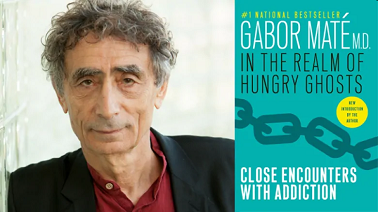What is addiction?
Addiction is a treatable, chronic medical disease involving complex interactions among brain circuits, genetics, the environment, and an individual’s life experiences. People with addiction use substances or engage in behaviors that become compulsive and often continue despite harmful consequences. Prevention efforts and treatment approaches for addiction are generally as successful as those for other chronic diseases. (Adopted by the ASAM Board of Directors | September 15, 2019)
|
“Any repeated behavior, substance-related or not, in which a person feels compelled to persist, regardless of its negative impact on his life and the lives of others. ...Current research reveals that there’s nothing about ordinary people that make them more prone to addiction, there’s nothing intrinsic, there’s nothing innate, there’s nothing in their nature, their character that drives them to addiction.”
- Gabor Mate, MD |
Fr. Sam Portaro, author and former Episcopalian chaplain to the University of Chicago, defined addiction in this way:
“The heart of addiction is dependency, excessive dependency, and unhealthy dependency – unhealthy in the sense of unwholesome dependency that disintegrates and destroys.” (p. 129, In the Realm of Hungry Ghosts).
“The heart of addiction is dependency, excessive dependency, and unhealthy dependency – unhealthy in the sense of unwholesome dependency that disintegrates and destroys.” (p. 129, In the Realm of Hungry Ghosts).
